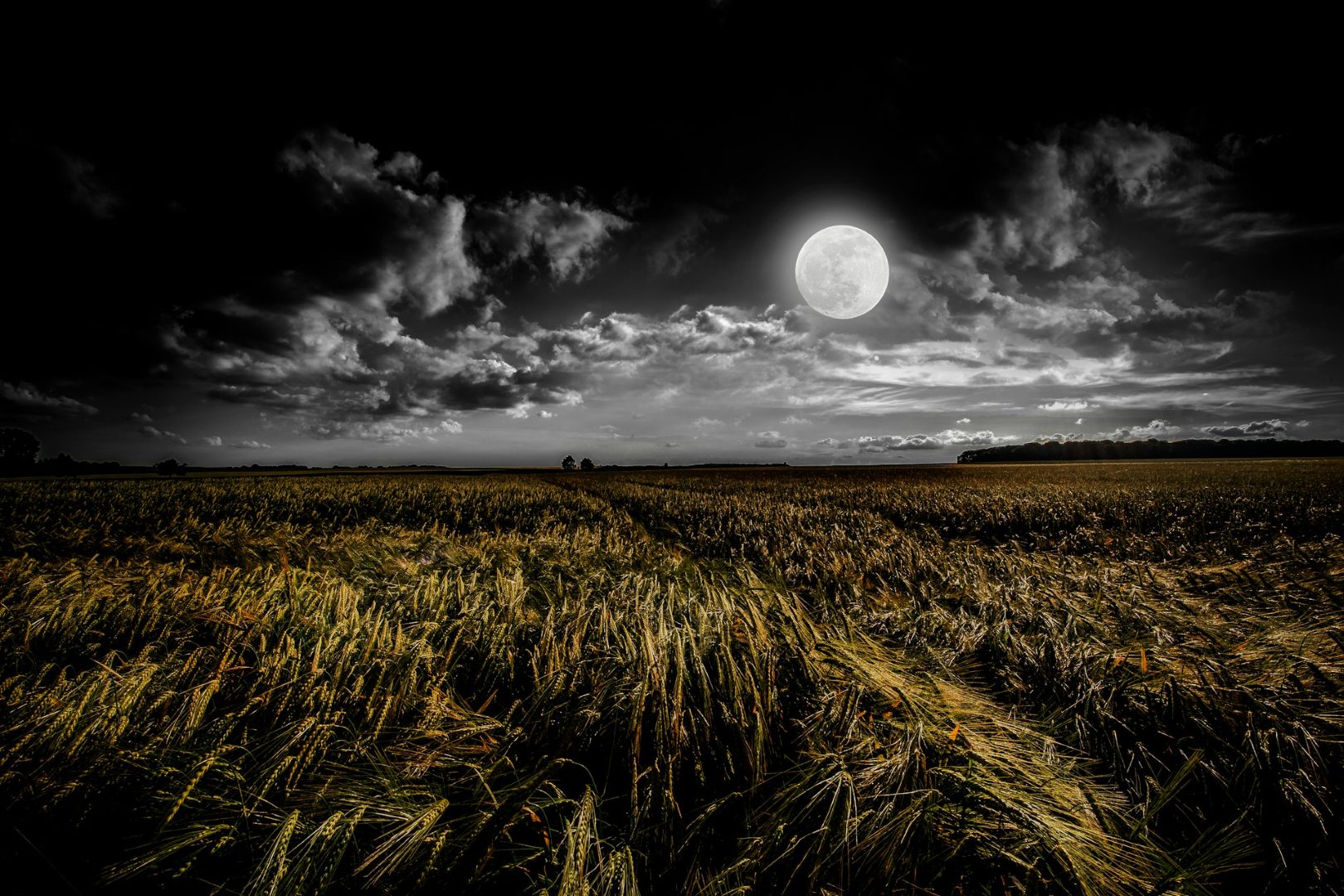What Does Moon Symbolize? Unveiling Its Timeless Meanings
Have you ever gazed up at the night sky, feeling a quiet pull from that luminous orb, the moon? It’s a very common experience, isn't it? For countless generations, people have looked to the moon, finding deep meaning in its steady presence and ever-changing face. So, too, it's almost natural to wonder: what does moon symbolize for us, really?
The moon, that silent watcher, holds a special spot in our collective human story. It's more than just a celestial body; it acts as a mirror for our hopes, our fears, and our dreams. In a way, its soft glow has lit up myths, folklore, and spiritual beliefs all over the world, shaping how we think about life, death, and everything in between.
From ancient tales to modern interpretations, the moon's symbolism is rich, very rich, and wonderfully varied. We're going to take a closer look at the many layers of meaning this familiar, yet mysterious, neighbor of ours carries. You know, it's quite fascinating how one object can mean so much to so many different people, isn't that something?
Table of Contents
- The Moon's Ancient Allure
- Feminine Energy and Intuition
- Phases of Life and Transformation
- Cultural Meanings Across the Globe
- The Moon in Personal Reflection
- People Often Ask About Moon Symbolism
The Moon's Ancient Allure
For thousands of years, the moon has held a powerful grip on the human imagination. It's always been there, a constant yet changing presence in the night sky. In a way, its mysterious glow has sparked curiosity and wonder across every culture, pretty much. People have always looked up and felt something special about it.
A Guiding Light in the Night
Before electric lights, the moon was a crucial source of light after sunset. It helped travelers find their way and farmers work late. So, it became a sign of guidance and protection in the dark. It’s almost like a friendly beacon, you know, keeping watch over everything when the sun goes down.
Many old stories talk about the moon as a wise elder, someone who sees all. It offers a gentle light, not the harsh glare of the sun. This makes it a symbol of quiet wisdom and peaceful reflection, which is quite interesting when you think about it.
Cycles of Change and Renewal
The moon's most obvious trait is its changing appearance. It goes from a thin sliver to a full, bright circle, then back again. This cycle, as a matter of fact, has always mirrored life's own rhythm of growth, decay, and rebirth. It’s a very clear visual of how things come and go.
This constant change, yet constant return, teaches us about new beginnings and endings. It shows us that even in darkness, light will come again. So, the moon really stands for the idea of renewal and the ongoing flow of existence.
Feminine Energy and Intuition
Across many traditions, the moon is strongly linked with feminine energy. Unlike the sun, which often stands for masculine power and logic, the moon represents softer, more intuitive qualities. It's a bit like the quiet strength that often goes unnoticed, isn't it?
The Mother Figure
The moon is often seen as a great mother figure. It watches over the Earth, much like a mother watches over her children. This connection makes it a symbol of nurturing, comfort, and deep, unconditional love, which is really quite beautiful.
Its gentle light can feel very soothing, like a mother's embrace. This association with maternal care is powerful in many cultures, giving comfort and a sense of safety. It just feels right, somehow, to think of it this way.
Emotional Depths and Subconscious
The moon also has a strong tie to our emotions and inner world. Just as the moon pulls the tides of the ocean, it's often thought to pull at our feelings. This makes it a symbol of our hidden thoughts and deep feelings, the ones we don't always show, you know?
It represents intuition, dreams, and the subconscious mind. When we feel moody or reflective, it's often said to be the moon's influence. This connection highlights the moon's role in helping us explore our inner selves, which is actually pretty important for personal growth.
Phases of Life and Transformation
The moon's different phases offer powerful lessons about life's journey. Each phase holds its own special meaning, reflecting various stages of development and change. It's almost like a natural calendar for our own personal transformations, isn't it?
New Moon: Beginnings and Intentions
The new moon, when the sky is dark, symbolizes fresh starts. It's a time for planting new seeds, setting intentions, and planning for the future. Many people use this phase for quiet reflection and starting new projects. It's basically a clean slate, you know?
It's a moment to think about what you want to bring into your life. This period encourages hope and the belief in new possibilities. So, it's a very powerful time for setting things in motion.
Full Moon: Culmination and Release
The full moon, bright and round, stands for completion and the peak of energy. It's a time when things come to fruition, when efforts show their results. This phase is often associated with celebration and gratitude for what has grown. It’s like a big spotlight on everything, apparently.
It's also a time for letting go of what no longer serves you. Many find it a good time for releasing old habits or negative thoughts. So, the full moon is about both fulfillment and release, which is a pretty good balance.
Waning Moon: Letting Go
As the moon shrinks, it enters its waning phase. This period is about winding down, releasing, and cleaning up. It's a time for reflection and preparing for a new cycle. It’s almost like clearing out your closet, you know, getting ready for something new.
It encourages us to shed what we no longer need, whether it's old ideas or material things. This phase teaches us the value of surrender and trust in the natural flow of things. So, it’s a quiet time for inner work.
Waxing Moon: Growth and Building
The waxing moon, growing larger each night, symbolizes building and increasing energy. It's a time for action, for working towards your goals, and for gathering strength. This phase supports growth and progress in all areas of life. It's basically about putting in the effort, you know?
It encourages us to put our plans into action and to nurture our aspirations. This period is about steady movement forward, step by step. So, it's a very active and hopeful time.
Cultural Meanings Across the Globe
The moon's symbolism isn't just one thing; it changes greatly from one culture to another. Its meaning is woven into the very fabric of different societies, reflecting their unique beliefs and ways of life. It’s quite amazing how diverse these interpretations can be, actually.
Lunar Deities and Myths
Many cultures have gods and goddesses linked to the moon. In some places, the moon is a powerful goddess, like Artemis in Greek mythology or Luna in Roman tales. She represents hunting, childbirth, and wild places. In other cultures, like some Native American traditions, the moon might be a male deity, a wise grandfather figure. These stories, you know, help explain the world.
These lunar figures often have powers over water, emotions, and the night. They show the moon's influence on life's hidden sides. So, the moon's role in myths is very important, shaping how people understand their world.
Harvest and Tides
Farmers and fishermen have always paid close attention to the moon. Its phases guide planting and harvesting times. The full moon, for instance, often marks a time of abundance, hence names like "Harvest Moon." It's a very practical connection, too.
The moon's pull on the tides is also well-known. This connection to water and natural rhythms makes it a symbol of ebb and flow, of things coming and going. It’s basically a natural clock for many aspects of life, you know, especially for those living by the sea.
The Moon in Personal Reflection
Beyond cultural myths, the moon also holds deep personal meaning for many. It offers a chance for quiet thought and a way to connect with our inner selves. This personal connection is very powerful, pretty much for everyone.
Connecting with Your Inner Self
Looking at the moon can encourage introspection. Its calm light can help us feel more connected to our feelings and thoughts. Many people use the moon's phases as a guide for personal growth and self-discovery. It’s like a quiet friend, you know, helping you look inside.
It's a chance to pause and listen to your own wisdom. This personal connection to the moon can bring a sense of peace and clarity. So, it’s a really helpful tool for understanding yourself better.
Finding Balance
The moon, with its constant cycle of light and dark, reminds us about balance. It shows us that both light and shadow are part of life. This idea helps us accept all parts of ourselves, the good and the challenging. It’s a very important lesson, isn't it?
It encourages us to find harmony between our active, daytime selves and our reflective, nighttime selves. This search for balance is a lifelong journey. So, the moon offers a gentle reminder to embrace every aspect of our existence.
To truly appreciate the moon's impact on our world, it helps to understand its physical characteristics. Learn more about the moon's journey around Earth on our site, and link to this page for more insights into celestial bodies.
The moon’s influence on our planet, especially the tides, is a prime example of its quiet strength. You can find out more about the science behind lunar phases and tides on a well-known astronomical observatory's website. This scientific understanding adds another layer to its rich symbolism, too.
People Often Ask About Moon Symbolism
Here are some common questions people have about the moon's meanings:
What does the full moon mean spiritually?
The full moon often stands for a time of completion, peak energy, and heightened intuition. Spiritually, it's seen as a powerful time for manifestation, for giving thanks, and for letting go of things that no longer serve you. It’s basically a moment of intense energy, you know, where things come to a head.
Is the moon a symbol of hope?
Yes, the moon can absolutely be a symbol of hope. Even in the darkest nights, its light appears, reminding us that light always follows darkness. This makes it a powerful sign of hope, renewal, and the promise of new beginnings. It’s a very comforting thought, isn't it?
What does a crescent moon symbolize?
A crescent moon, especially the waxing crescent, often symbolizes new beginnings, growth, and the start of a journey. It represents potential and the early stages of development. The waning crescent, on the other hand, can mean letting go and preparing for a new cycle. So, it really depends on which way it's facing, basically.
The moon, in all its phases and forms, continues to fascinate us. It's a reminder of cycles, of change, and of the deep, hidden parts of ourselves. Its light helps us reflect, grow, and find our way, even in the darkest times. So, next time you look up, consider the many layers of meaning that beautiful orb holds for you, personally. It's a truly amazing thing, you know?
- Elvis Statues
- Christina Webb
- Why Are Quince Dresses So Big
- Larry Richmond Sr Evansville
- Oprah Winfrey Boob Size

What Does Moonlight Symbolize? | Meaningful Moon

What Does Moonlight Symbolize? | Meaningful Moon

Best 11 What Does A Full Moon Symbolize? – Artofit